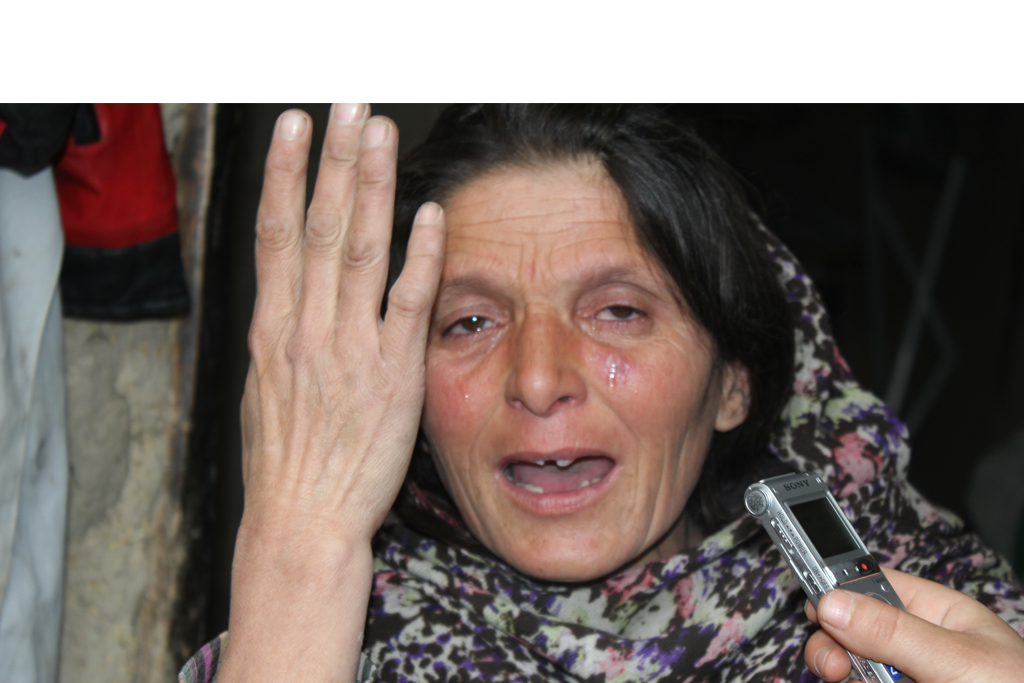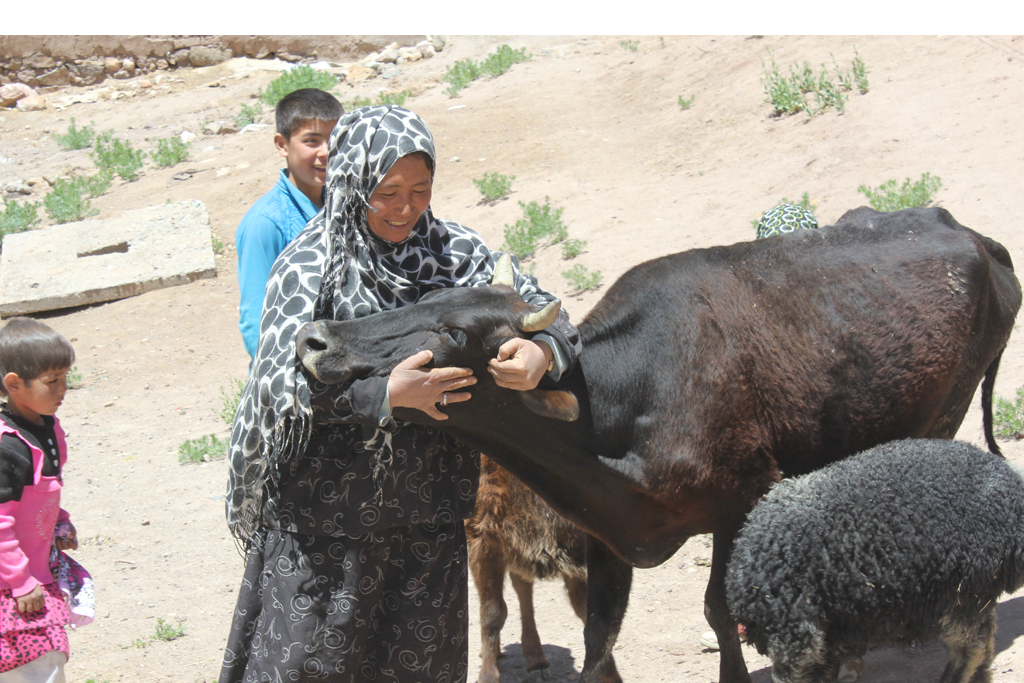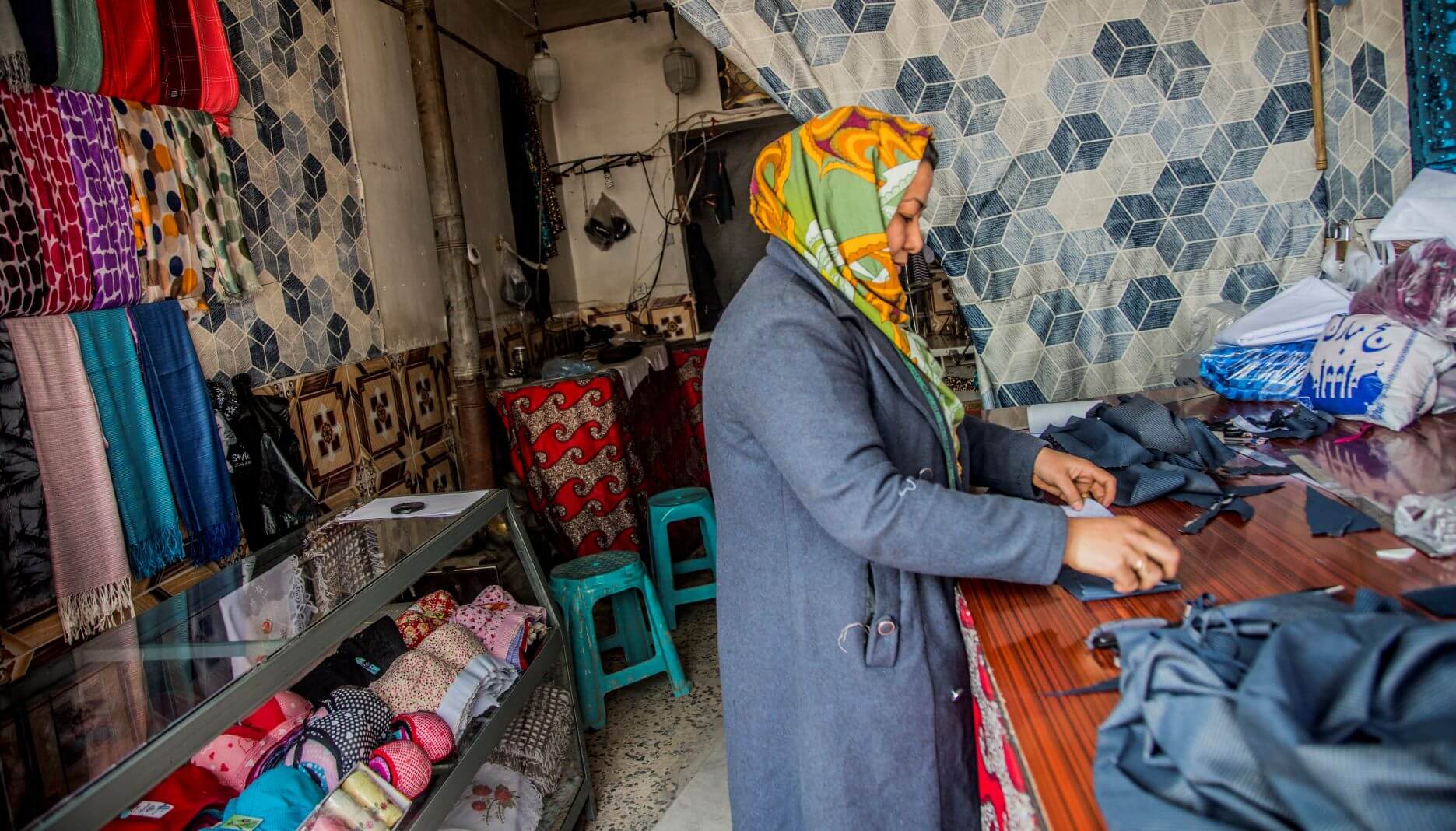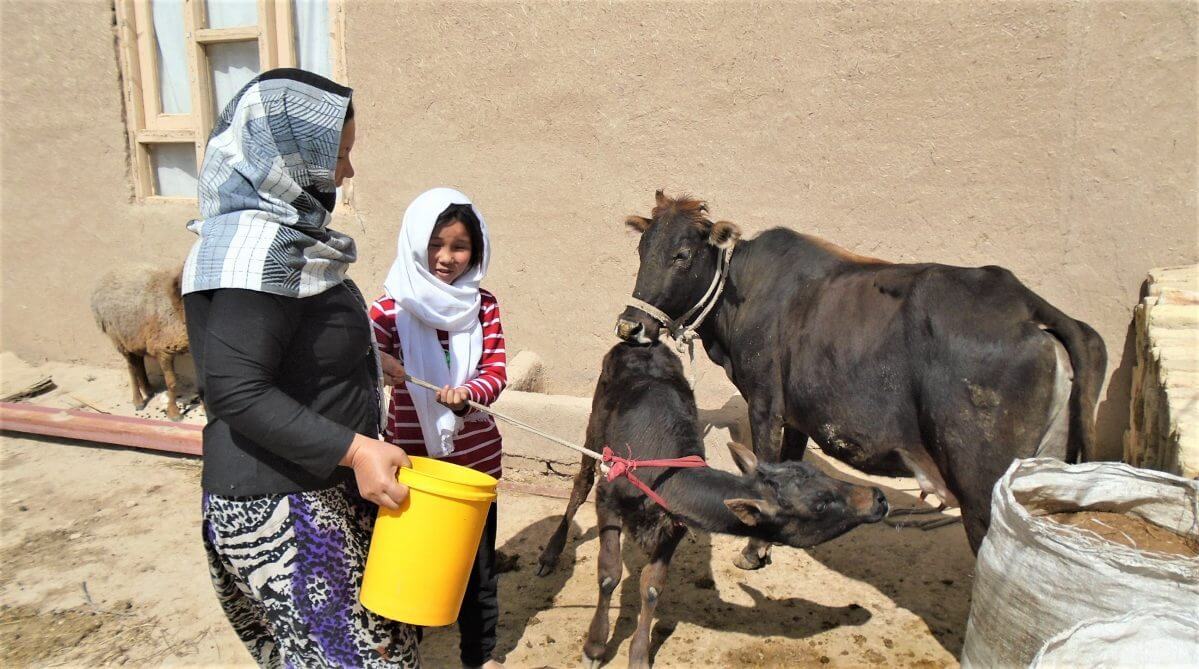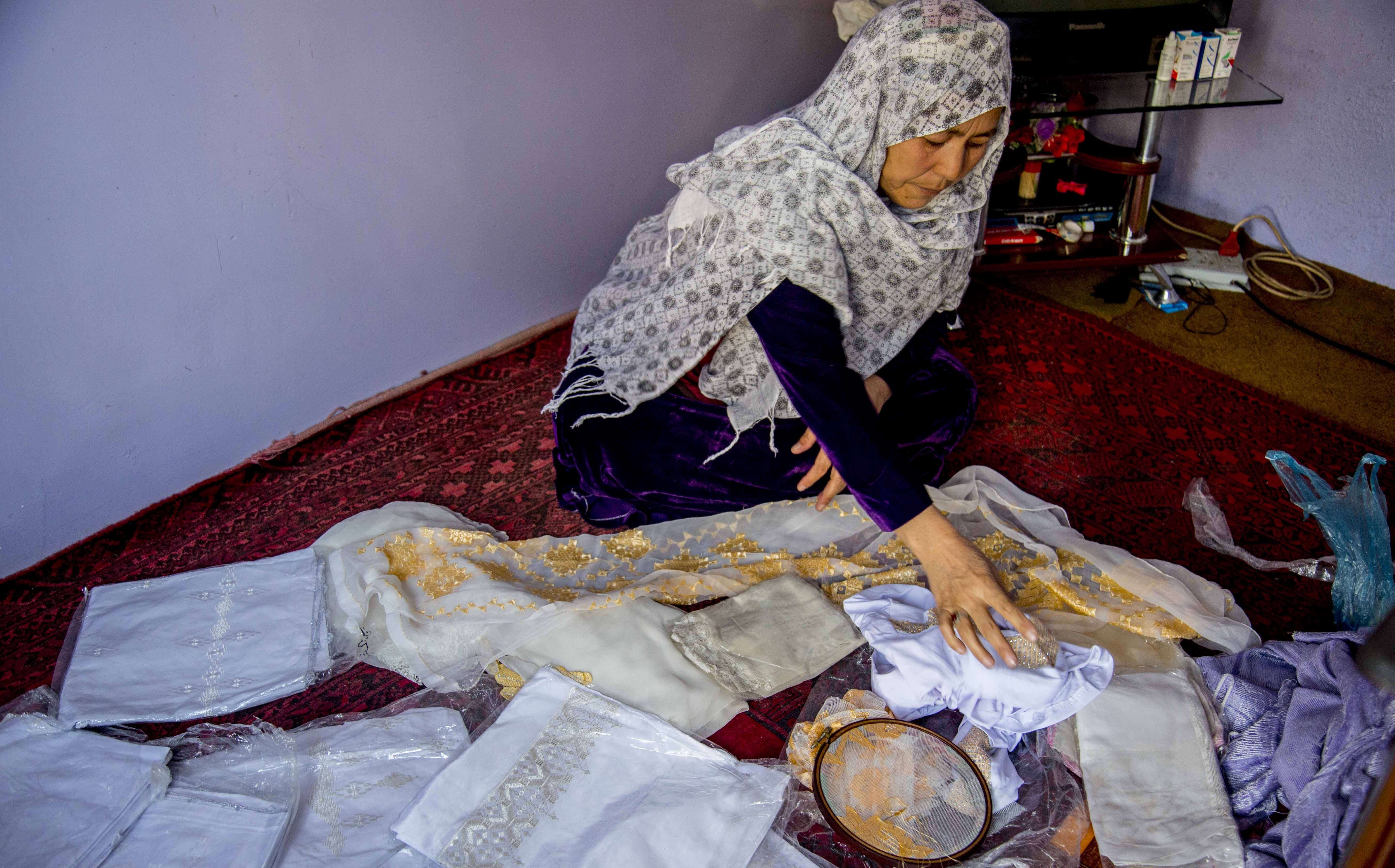For MISFA staff Matin Ezidyar, the trip to Badakhshan was work—one of the tasks to tick off from his list of priorities. He was scheduled to meet with some of the beneficiaries of the Targeting the Ultra Poor Program (TUP), a project being implemented by MISFA with funding from the International Fund for Agricultural Development (IFAD). He went there to learn about the project, which was successfully piloted in Bamiyan province and was recently expanded to Badakhshan. He was also tasked to interview beneficiaries of the program and write profile articles about them for MISFA’s informational tools. The experience, however short, turned into an unforgettable personal awakening. Mr. Ezidyar finally understood the real meaning of the words “despair” and “abject poverty”. In this article, he shares his personal account of his meeting with one of the TUP beneficiaries in Dhooki, a rural village of Faizabad, the capital city of Badakhshan Province.
In many ways, Arefa’s house was a reflection of her life. Dark. Bereft. Oppressive. Everything a home and life shouldn’t be.
The traditional mud house in Dhooki, a rural village outside of Faizabad, has two small storage-sized rooms shared by a family of 10, of which the breadwinner is Arefa, 47 years old.
One room is the living/bedroom/everything space, furnished mainly by stacks of crusty, worn-out winter blankets, which are not enough to keep the entire family warm during winter, says Arefa. Badakhshan is 2,000 meters above sea level and is well known to have extremely cold temperatures over the winter months.
The only other room in the house—smaller and darker—appears to be the kitchen, with a soot-covered woodstove oven providing the only clue that the space is used for cooking.
It is hard to imagine that 10 individuals inhabit the tiny mud house, but it is even harder to imagine that Arefa is the breadwinner for five daughters, two sons, a dying husband, her aging father-in-law, and her ailing, 110-year old mother.
Arefa’s husband, according to a doctor in Badakhshan, needs to be treated urgently in better-staffed and equipped hospitals in the capital, Kabul; or better yet, in neighboring countries, Pakistan or India. He was diagnosed to have malfunctioning lungs that, if left untreated, will collapse in a matter of months and take his life.
Arefa, who is illiterate, has been begging as a way of “breadwinning” for her big household, which is literally scraping by meal-to-meal. She narrated how one time, only two days after giving birth to one of her children, she had to go beg in the streets because there was no food and no money for the next meal.
As such, getting treatment for her husband is far beyond her grasp. But the thought of just watching her husband die, not being able to do something to save the father of her children, is simply unbearable.
On top of this burden, Arefa herself is beset by an undiagnosed abdominal illness that intermittently throws her off squirming in agonizing pain. In the course of this interview, Arefa begged for a quick break and doubled over, distress written across her creased face. As she tried to suppress sobs of pain, tears streamed down her cheeks.
“I have no friends or relatives to run to for help. If I had any, I would not be in this miserable condition,” cried Arefa. “My only friend is the Almighty, and sometimes, I pray and ask Him to take me and my children.”
One of her children did get taken away, although not by the Almighty as she sometimes prayed for in moments of despair. As if Arefa did not have enough to worry about, she came home one day to find one of her teenaged daughters, Naseema, who is not yet 18, sobbing next to an older male stranger.
It turned out, she was married off by Arefa’s husband to some stranger from Sheberghan, another province in northern Afghanistan, because the man could pay dowry to the family. The sale left mother and daughter wailing until Naseema had to go to Sheberghan to live with her husband and his family.
But now, Arefa learned that her daughter wants to escape from her new residence and Arefa is extremely worried about the consequences. It is not uncommon in Afghanistan and Pakistan for women and girls in Naseema’s predicament to be the subjects of honor killings.
Arefa’s life is a clear definition of what being “ultra poor” means. And that is why she is among the 800 beneficiaries selected for the TUP program from the Faizabad and Khash districts of Badakhshan. Following years of misery, there is a glimmer of hope for Arefa, who, at the very least, can now stop begging in the streets.
As a TUP beneficiary, she now receives a monthly stipend for basic household needs, including food. She is now also tending to the livestock she received for free, as she gets trained on livestock rearing, basic reading, writing and financial literacy, as part of the holistic support provided by the program to the ultra poor for a period of 24 months. Moreover, she now has access to free medication and check-ups at health facilities nearby.
At the end of this period, beneficiaries are expected to be in a position to apply some of their acquired knowledge and skills set to engage in income-generating activities, starting with the livestock they have been caring for. They could also be in a position to take out a loan from a microfinance institution to start their own micro enterprises in which they could employ members of their households.
It may take some time for Arefa to get to this point of self-sufficiency, but just waking up every morning these days has gotten a lot easier—she does not have to worry about how she is going to pay for the next meal.
And every night before going to bed, she is grateful to have acquired something new that day. A new skill. A few nuggets of practical knowledge. New assets for a fresh beginning for her and her family. Now there is real hope that they can escape their miserable life of poverty; a light she can see glimmering not so far away.
